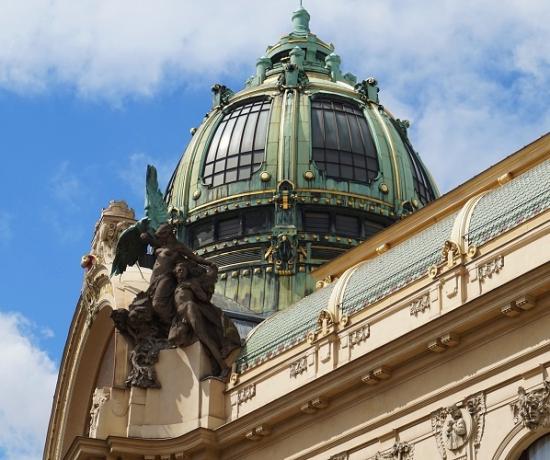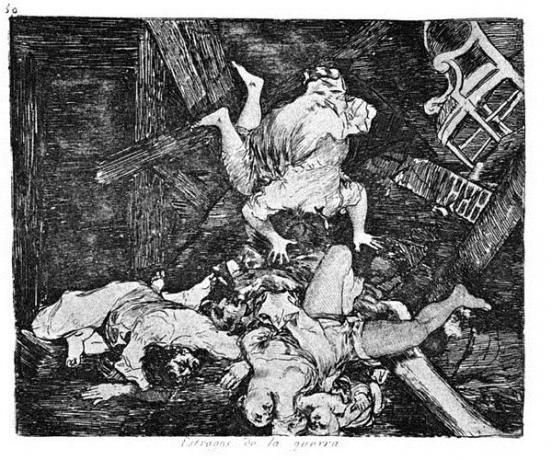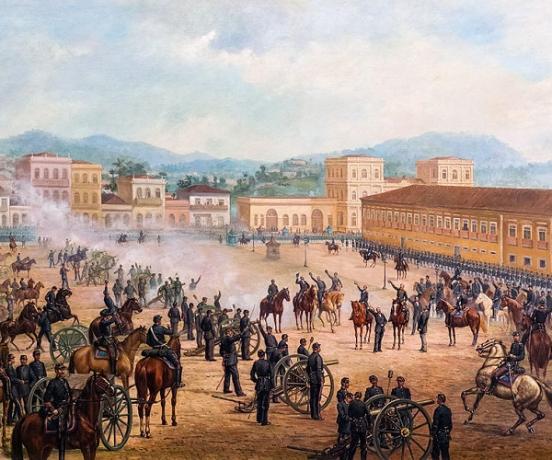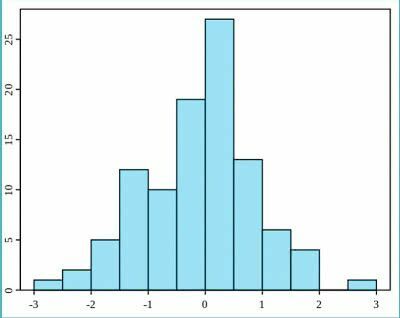The nineteenth century (19th century) is the period between the years 1801 and 1900. It was a phase of countless changes in world history, marked by revolutions, discoveries, criticisms and innovations.
In the nineteenth century there were many conflicts and revolutions that marked world history and the history of Brazil, such as the Revolution of 1848 and the Proclamation of the Republic in Brazil in 1889. In this same period lived philosophers and thinkers who created theories and reflections that were responsible for changing some patterns of society at the time.
In the arts in general it was a very creative and innovative period, responsible for the emergence of important movements such as Romanticism, Naturalism, Realism, Impressionism, Parnassianism and Symbolism.
In architecture, the resurgence of the medieval Gothic style (neo-gothic) and the emergence of the Art Nouveau French at the end of the century.
The Catalan architect Antoní Gaudi (1852-1926) is also an important name, he was a modernist architect responsible for important works such as Casa Batlló, Sagrada Família and Park Güell, all in the city of Barcelona.
 architecture in Art nouveau.
architecture in Art nouveau.
In the area of science and medicine, it was a period of advances in research, with creations and discoveries that revolutionized the course of history, such as the invention of the first car and the discovery of Radio and Polonium.
Get to know a little of the most remarkable events and innovations that took place in these hundred years.
Important historical events
All over the world, the 19th century was marked by major historical and political events, such as wars, power struggles and declarations of independence. Get to know some of the most important ones:
Important facts in the world
- 1801: Election of American President Thomas Jefferson, responsible for the Declaration of Independence of the United States, published on July 4, 1776.
- 1803: Beginning of the war between England and France, known as the Napoleonic Wars.
- 1806: France makes the continental blockade of England, through the Decree of Berlin. The blockade did not allow ships from the United Kingdom and Ireland to arrive in French ports bringing imported goods.
- 1811: Venezuela and Paraguay become independent countries.
- 1825: The Cisplatine War begins, a battle between Argentina and Brazil for the domain of Cisplatin (current territory of Uruguay).
- 1839: Beginning of the first Opium War, after China banned entry into the country of opium coming from England.
- 1848: Beginning of the French Rebellion that started the Second Republic.
- 1861: Beginning of the Civil War (American Civil War), the conflict between the unification and emancipation of the country.
- 1864: Assassination of American President Abraham Lincoln.
Events in the arts and philosophy
The arts in the 19th century were marked by the emergence of various artistic movements. In painting, Romanticism, Realism and Impressionism stand out. In the literature of this period, the following literary movements emerged: Romanticism, Realism, Parnassianism and Symbolism.
In philosophy emerged currents of thought such as: Utilitarianism, Positivism and Marxism.
Among the events that were important, whether in the history of the arts or in philosophy, the following stand out:
- 1810: Franciso de Goya starts the engravings of The Disasters of War.
- 1824: Ludwig van Beethoven composes the Ninth Symphony.
- 1848: Publication of Communist Manifesto (by Karl Marx and Friedrich Engels).
- 1859: Launching the work Species Theory (Charles Darwin).
- 1866: Publication of Crime and Punishment (Fyodor Dostoevsky).
- 1869: Release of War and peace (Liev Tolstoy).
- 1875: Claude Monet painted woman with parasol.
- 1889: Van Gohg pt the starry night.
- 1893: Edvard Munch PT The Scream.
 war damage - One of Goya's 80 prints for the series the disasters of war (1810).
war damage - One of Goya's 80 prints for the series the disasters of war (1810).
painters
The painters who most marked the history of the 19th century were:
- Francisco de Goya (1746-1828)
- William Turner (1775-1851)
- Eugene Delacroix (1798-1863)
- Gustave Coubert (1819-1877)
- Edward Charles Barnes (1830-1882)
- Camille Pissarro (1830-1903)
- Édouard Manet (1832-1883)
- Edgar Degas (1834-1917)
- Alfred Sisley (1839-1889)
- Paul Cezanne (1839-1906)
- Claude Monet (1840–1926)
- Pierre-Auguste Renoir (1841–1919)
- Vincent Van Gogh (1853–1890)
- Alphonse Mucha (1860-1939)
- Gustav Klint (1862-1918)
thinkers and philosophers
The nineteenth century was also very rich for philosophy, with the emergence of theories that are still studied today, such as the Positivism of Auguste Comte, the Marxism of Karl Marx and Friedrich Engels and the Pragmatism of Charlie Sanders Peirce, William James and Oliver Wendell.
Among the best known philosophers and thinkers who lived in the 19th century are:
- Auguste Comte (1789-1857)
- George Hegel (1710-1831)
- Charles Darwin (1809-1882)
- Karl Marx (1818-1883)
- Friedrich Engels (1820-1895)
- Herbert Spencer (1820-1903)
- Fyodor Dostoevsky (1821-1881)
- Charlie Sanders Peirce (1839-1914)
- Friedrich Nietzsche, (1844-1900)
- Sigmund Freud (1856-1939)
Inventions, creations and discoveries
As in other areas, the sciences also made great strides during the nineteenth century. Numerous processes, elements and products were created or discovered that are still used today and that were fundamental for the evolution of society.
Among the inventions and discoveries that were important, the following stand out:
- 1816: Emergence of photography. Louis Jacques Daguerre created the photographic processing model that became known as Daguerreotype, released in 1839.
- 1824: Creation of Braille, the reading system used by people with visual impairments (Louis Braille).
- 1846: Invention of anesthesia by William Morton.
- 1875: Carl von Linde creates the fridge.
- 1879: Werner von Siemens creates the electric locomotive.
- 1886: Karl Benz invents the first automobile (Benz Patent-Motorwagen).
- 1894: Creation of the cinematrógafo, attributed to the Lumiére brothers.
- 1895: Discovery of X-ray by Wilhelm Conrad Röntgen.
- 1898: Discovery of two important chemical elements, Radium (Ra) and Polonium (Po) by Marie Curie.
 Daguerreotype (1839).
Daguerreotype (1839).
19th century in Brazil
In Brazil, the 19th century was also a period with many relevant historical events. It was a time of political events, wars and important discoveries in the country's history. The historical context of the period involved the occurrence of numerous battles and disputes for power.
In this period, Brazilian society was almost entirely organized around rural structures and most of the population lived in urban areas, life in cities was still in its infancy and urban space was scarce organized.
Rural activities were responsible for practically the entire economy of the country and slavery still prevailed as a common practice in society.
The arrival of the Portuguese royal family in the country in 1808 brought the first lifestyle changes Brazilian. Some time later, discussions about slavery began to ignite in the country, with the abolition of slavery only taking place in the year 1889.
Discover some of the important historical moments that took place during the 19th century in Brazil:
- 1808: The Portuguese Court arrives in Brazilian lands.
- 1822: Declaration of Independence of Brazil.
- 1824: Promulgation of the 1st Constitution of Brazil.
- 1831: Dom Pedro I abdicates the Throne.
- 1835: Beginning of the Farrapos War in Rio Grande do Sul.
- 1847: Coming of Age Coup. Dom Pedro II assumes the Brazilian throne.
- 1850: Publication of the Eusébio de Queiroz Law that prohibited the slave trade.
- 1864: Beginning of the Paraguay War.
- 1888: Princess Isabel signs the Lei Áurea that abolished slavery.
- 1889: Proclamation of the Republic.
 Proclamation of the Republic - Benedito Calixto (1893).
Proclamation of the Republic - Benedito Calixto (1893).
Brazilian artistic events
In the arts, the nineteenth century was marked by some important events, such as:
- 1810: Father José Maurício composes the Mass of Our Lady of Conception.
- 1844: Publication of the little brunette (Joaquim Manuel de Macedo).
- 1857: Publication of The Guarani (José de Alencar).
- 1861: Victor Meirelles paints The first mass in Brazil.
- 1870: Carlos Gomes composes the opera The Guarani.
- 1875: Release of the slave Isaura (Bernardo de Guimarães).
- 1881: Publication of Posthumous Memories of Brás Cubas (Axe of Assisi).
- 1888: Pedro Américo paints Independence or death.
- 1890: Book release the tenement (Álvares de Azevedo).
- 1893: Benedito Calisto paints Proclamation of the Republic.
- 1899: Publication of Dom Casmurro (Machado de Assis).
- 1889: Publication of fanfares (Teófilo Dias) who inaugurated Parnassianism in the country.
See also the meanings of these artistic movements: Romanticism, Realism, Naturalism, Impressionism, Symbolism and Parnassianism.

